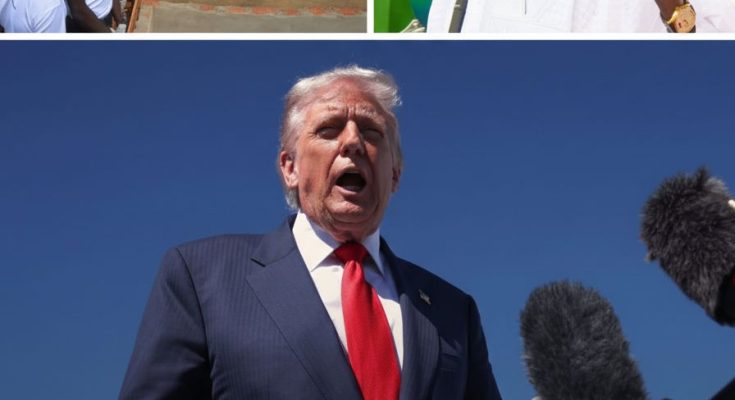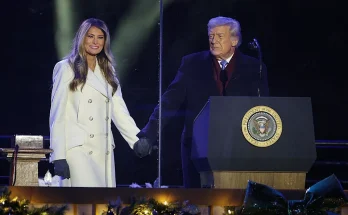President Trump vows to go “guns-a-blazing” into Nigeria if Christian persecution continues, demanding urgent government action to stop extremist violence
President Donald Trump has ignited a global firestorm with his latest declaration, warning that the United States may intervene militarily in Nigeria if the African nation fails to stop the mass killing of Christians by Islamist extremists. In a bold and uncompromising post shared across his social media channels, Trump said he would go in “guns-a-blazing” if Nigeria’s government didn’t act immediately to end the slaughter, a phrase that sent shockwaves through diplomatic circles and re-centered international attention on one of the world’s most deadly religious conflicts.
Trump’s message was clear, blunt, and unmistakably urgent. He accused the Nigerian government of standing by as Christians across the country face relentless attacks from militant groups such as Boko Haram and the Islamic State West Africa Province. “WARNING: THE NIGERIAN GOVERNMENT BETTER MOVE FAST!” Trump wrote. “The killing of Christians must end NOW — or America will handle it.” Within hours, the post had gone viral, drawing praise from religious-freedom advocates and outrage from foreign policy analysts who feared a potential diplomatic rupture.

The statement comes amid renewed violence across Nigeria’s Middle Belt and northern regions, where Christian villages have suffered repeated attacks by armed groups who claim religious and ideological motives. According to data compiled by human-rights organizations, more than 6,000 Christians have been killed in Nigeria since early 2024 — and tens of thousands displaced. Trump’s remarks referenced those numbers directly, citing reports from watchdog groups like Open Doors USA and the International Society for Civil Liberties, which have repeatedly documented government inaction and local security failures.

In Nigeria, reactions were divided. President Bola Ahmed Tinubu’s office responded swiftly, rejecting Trump’s characterization of Nigeria as “a failed state that allows religious murder.” The Nigerian presidency issued a statement insisting that “no one faith is under siege” and that “terrorism and banditry affect all citizens regardless of religion.” Still, the government’s attempt to downplay the violence clashed with heartbreaking footage emerging online — mass burials, burned churches, and weeping families in Benue, Plateau, and Kaduna states. For many Nigerians, Trump’s threat, while explosive, resonated with their frustration over years of unchecked killings.

Trump’s warning also carried significant political undertones. Since returning to the global stage, he has repeatedly framed the protection of Christians as a central element of his worldview, portraying himself as a defender of faith in a time of rising global hostility. His previous administration made religious freedom a cornerstone of U.S. foreign policy, and reinstating Nigeria to the State Department’s “Country of Particular Concern” list in 2025 marked one of his early symbolic moves. His latest comments now escalate that stance into the realm of direct military possibility.

Diplomatic insiders describe Trump’s post as both a moral declaration and a strategic signal. “He’s drawing a line,” one senior U.S. official familiar with his team’s discussions said. “This is about showing that America will not sit idle while extremists butcher innocent Christians. But it’s also about reasserting global authority at a time when many nations are ignoring Western pressure.”
Within hours of Trump’s statement, international response poured in. Christian advocacy groups across the U.S. and Europe celebrated the warning as a long-overdue act of courage. Franklin Graham and several leaders of American evangelical networks publicly thanked Trump for “standing up for persecuted believers when few world leaders have the spine to speak.” At the same time, foreign policy veterans cautioned against impulsive escalation. Former diplomats warned that any military intervention could destabilize the Sahel region and risk fueling anti-American sentiment across West Africa.


Despite those cautions, Trump’s base saw the declaration as yet another example of his willingness to act where others merely talk. “Trump is the only leader bold enough to say what the world refuses to acknowledge,” conservative commentator Benny Johnson posted on X. “Christians are being slaughtered — and he’s not going to let it continue.”
Nigeria’s complex conflict has long confounded outside observers. What began as localized clashes over land, cattle, and climate displacement gradually evolved into a patchwork of sectarian violence, with extremist groups exploiting poverty and religious divides. In regions like Plateau State, Christian farmers have faced repeated assaults by Islamist militias, while Muslim civilians in other areas have suffered retaliatory attacks. The cycle of vengeance has deepened mistrust between communities and overwhelmed local authorities, leaving entire populations defenseless.
For years, global leaders have been accused of ignoring the crisis. Trump’s predecessor had lifted Nigeria from the religious-persecution watch list, citing diplomatic cooperation. Human-rights advocates argued that decision emboldened perpetrators. Now, with Trump threatening direct intervention, Nigeria once again finds itself under intense scrutiny. “Whether you like Trump or not,” said Raymond Ibrahim, a researcher of Christian persecution, “this message forces the world to pay attention. Christians in Nigeria have cried out for help for over a decade, and no one listened. Today, they feel heard.”

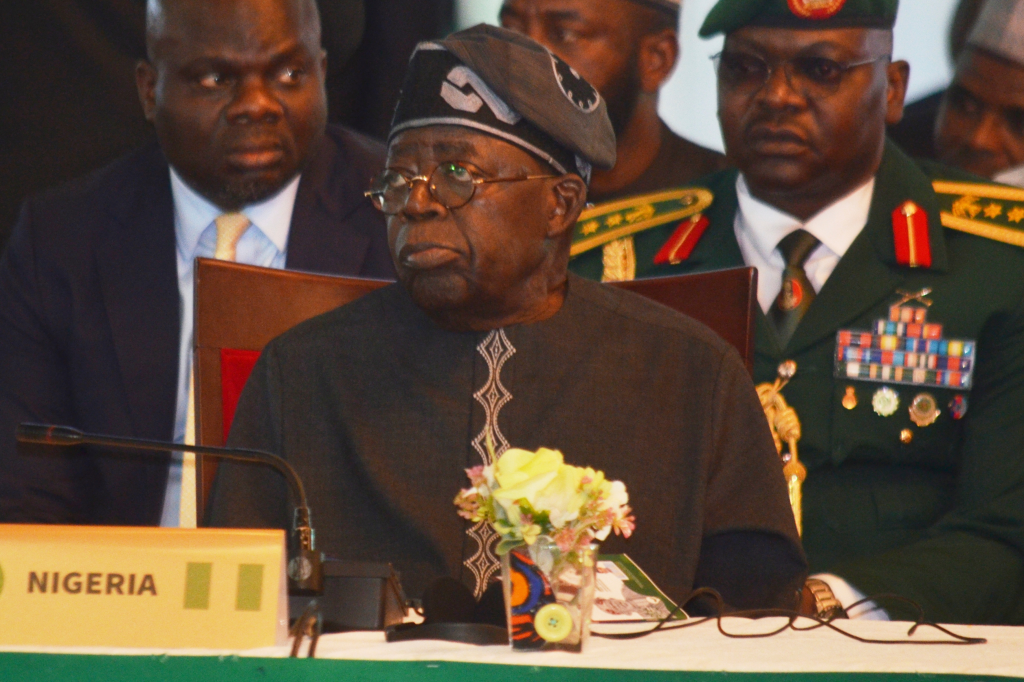
On Nigerian social media, thousands of users expressed mixed feelings — fear of international military involvement, but also gratitude that their suffering was finally receiving top-level attention. Hashtags like #PrayForNigeria and #TrumpSpeaksForTheVoiceless began trending across platforms, reflecting the raw emotions stirred by the announcement.
In Washington, congressional leaders were quick to respond. Several Republican lawmakers signaled support for Trump’s statement, with some calling for hearings into U.S. foreign aid to Nigeria. “If the Nigerian government cannot or will not protect its Christian population, America must reconsider its financial partnerships,” said Rep. Mike Waltz, a longtime advocate for global faith protection. Meanwhile, Democrats urged restraint, warning against what they described as “dangerous saber-rattling.”
Internationally, the Nigerian threat rekindles debates about sovereignty versus humanitarian intervention — the question of when a superpower should act beyond diplomacy to stop atrocities. Critics argue that America cannot afford another open-ended engagement, while others view Trump’s stance as a deterrent rather than a genuine war plan. The White House has not confirmed any operational moves by the U.S. military, though Pentagon sources acknowledge “heightened monitoring” of extremist activity in the region.

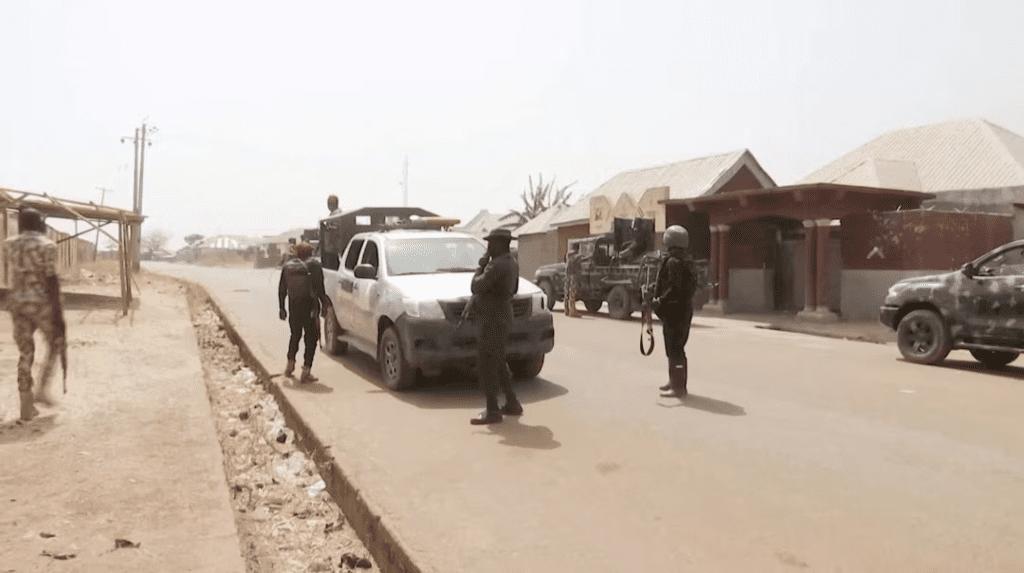
As the story developed, Trump doubled down on his message, insisting that “words are not enough” and warning that he was “watching Nigeria closely.” His allies circulated old photos of mass Christian funerals, contrasting them with the Nigerian government’s claims of progress. In one post, Trump wrote, “If Nigeria won’t stop it, we will. America protects freedom of faith — everywhere.”
The Nigerian Christian Association later released a statement thanking Trump “for speaking truth to power” and urging international observers to send human-rights monitors to the affected states. Several U.S. faith-based NGOs have since announced plans to expand their humanitarian presence in the region, citing “renewed American moral leadership.”
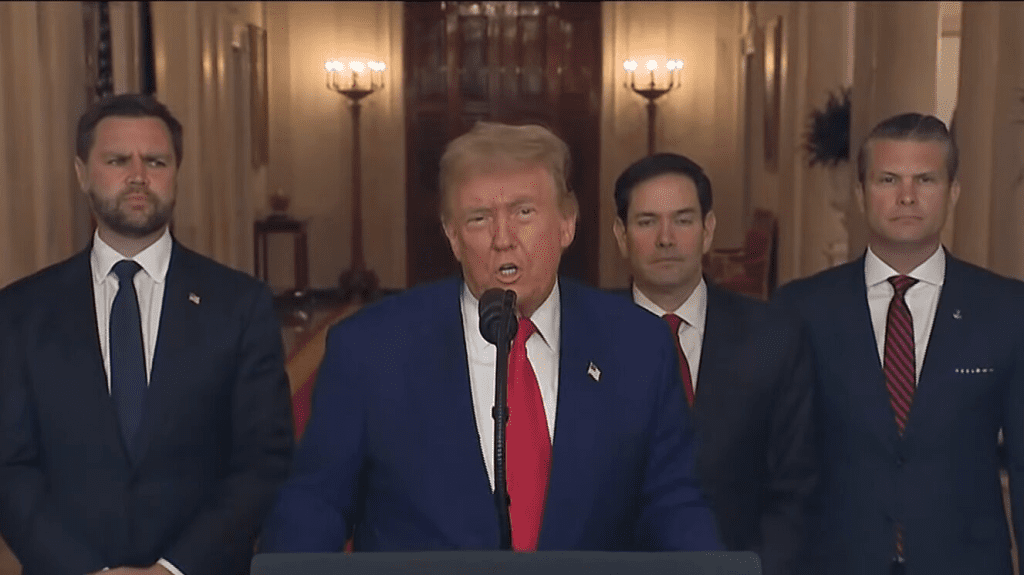
Whether Trump’s warning translates into real-world action remains uncertain. Analysts suggest that the rhetoric may be part of a broader diplomatic push — using public pressure to force Nigeria into visible reforms before the situation worsens. Nonetheless, his words have changed the global conversation, breaking through years of bureaucratic silence around Africa’s deadliest crisis.

For millions of Christians across Nigeria, Trump’s fiery statement has rekindled both hope and anxiety — hope that someone powerful finally noticed, and fear of what may come next. To them, his voice represents a long-awaited acknowledgment of their pain. To his critics, it’s a high-risk geopolitical gamble. Either way, his declaration has made one thing clear: the world can no longer ignore what’s happening in Nigeria.
